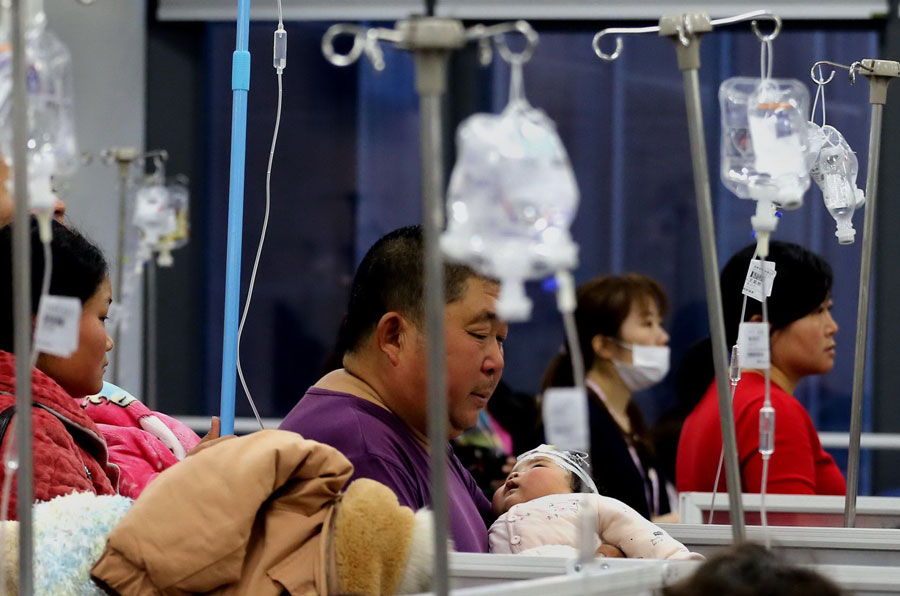Flu milder this year, but shouldn't be taken lightly
By WANG XIAOYU | China Daily | Updated: 2019-01-09 09:06

China is having a milder flu season than last winter, but the peak won't fade until late January.
The latest report released by the Chinese National Influenza Center logged an increase of flu outbreaks and samples testing positive for the flu virus since mid-December, with the H1N1 strain of influenza as the dominant type, followed by the H3N2 strain.
"Large parts of the country have entered the flu season, flu viruses are trending upward," according to the report, which was released on Friday.
Last year's flu epidemic was the most aggressive in recent years, claiming 106 lives in January and February 2018, which surpassed the previous two years combined, according to the National Health Commission.
"This winter's influenza is not as severe. In Beijing, the growth rate of flu outbreaks in kindergartens and primary schools has already slowed down," said Pang Xinghuo, deputy director of the Beijing Center for Disease Control and Prevention.
She added that the peak of infections is expected to trail off in mid-to late-January, following the usual pattern.
Despite the milder flu season, hospitals in major cities are scrambling to meet the sudden influx of patients with flu symptoms.
Xiamen Children's Hospital in Xiamen, Fujian province, recently saw a record-breaking 2,300 hospital visits in one day, largely due to a surge in children seeking treatment for fever, coughs and other flu symptoms, according to its WeChat account.
A similar surge also occurred at Beijing Ditan Hospital. Li Xinwang, director of the hospital's center for infectious diseases, noticed an uptick in visits by children and elderly people with flu symptoms.
"Flu-induced deaths are most common among the elderly over 70 and those with respiratory illnesses or cardiovascular issues," he said.
Li suggested that vulnerable groups receive vaccinations or take precautions, such as taking medications for flu in advance if their family members or friends catch it.
A shortage of flu vaccines affecting much of China since October stirred concerns about the incoming peak flu season. Pang said Beijing has adequate supplies of flu vaccine, and 1.24 million doses have been administered so far, roughly the same as last year.
"Though prime time for inoculation, from late October to early December, has passed, people who fail to get flu shots during the recommended periods can still contact clinics as flu vaccine is now in full stock," she said.
"The peak travel season during the Spring Festival holiday is approaching, and a large number of people are planning to travel abroad. It's important to keep a close watch on infectious diseases at their destinations and take precautionary measures on the road," she said.
























